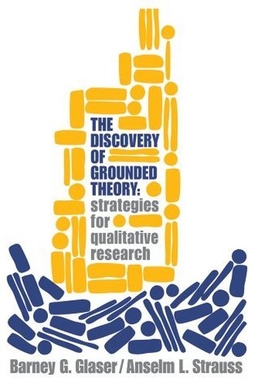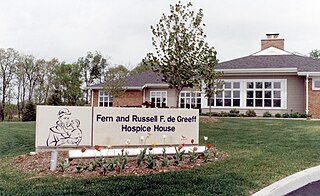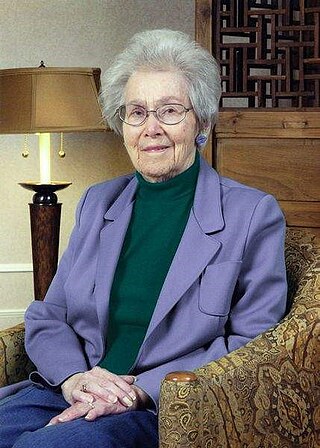Related Research Articles
Dying is the final stage of life which will eventually lead to death. Diagnosing dying is a complex process of clinical decision-making, and most practice checklists facilitating this diagnosis are based on cancer diagnoses.
Participant observation is one type of data collection method by practitioner-scholars typically used in qualitative research and ethnography. This type of methodology is employed in many disciplines, particularly anthropology, sociology, communication studies, human geography, and social psychology. Its aim is to gain a close and intimate familiarity with a given group of individuals and their practices through an intensive involvement with people in their cultural environment, usually over an extended period of time.
The right to die is a concept based on the opinion that human beings are entitled to end their life or undergo voluntary euthanasia. Possession of the right to die is often bestowed with the understanding that a person with a terminal illness, incurable pain, or without the will to continue living should be allowed to end their own life, use assisted suicide, or decline life-prolonging treatment. The question of who, if anyone, may be empowered to make this decision is often the subject of debate.
Anselm Leonard Strauss was an American sociologist professor at the University of California, San Francisco (UCSF) internationally known as a medical sociologist and as the developer of grounded theory, an innovative method of qualitative analysis widely used in sociology, nursing, education, social work, and organizational studies. He also wrote extensively on Chicago sociology/symbolic interactionism, sociology of work, social worlds/arenas theory, social psychology and urban imagery. He published over 30 books, chapters in over 30 other books, and over 70 journal articles.

Thanatology is the scientific study of death and the losses brought about as a result. It investigates the mechanisms and forensic aspects of death, such as bodily changes that accompany death and the postmortem period, as well as wider psychological and social aspects related to death. It is primarily an interdisciplinary study offered as a course of study at numerous colleges and universities.
Terminal illness or end-stage disease is a disease that cannot be cured or adequately treated and is expected to result in the death of the patient. This term is more commonly used for progressive diseases such as cancer, dementia or advanced heart disease than for injury. In popular use, it indicates a disease that will progress until death with near absolute certainty, regardless of treatment. A patient who has such an illness may be referred to as a terminal patient, terminally ill or simply as being terminal. There is no standardized life expectancy for a patient to be considered terminal, although it is generally months or less. Life expectancy for terminal patients is a rough estimate given by the physician based on previous data and does not always reflect true longevity. An illness which is lifelong but not fatal is a chronic condition.

Barney Galland Glaser (1930–2022) was an American sociologist and one of the founders of the grounded theory methodology.

Grounded theory is a systematic methodology that has been largely applied to qualitative research conducted by social scientists. The methodology involves the construction of hypotheses and theories through the collecting and analysis of data. Grounded theory involves the application of inductive reasoning. The methodology contrasts with the hypothetico-deductive model used in traditional scientific research.

Awareness of Dying is a 1965 book (ISBN 0-202-30763-8) by Barney Glaser and Anselm Strauss. In his 2007 article, sociologist Stefan Timmermans called the book "landmark".

The Discovery of Grounded Theory is a 1967 book (ISBN 0-202-30260-1) by Barney Glaser and Anselm Strauss on grounded theory.
Theoretical sampling is a process of data collection for generating theory whereby the analyst jointly collects codes and analyses data and decides what data to collect next and where to find them, in order to develop a theory as it emerges. The initial stage of data collection depends largely on a general subject or problem area, which is based on the analyst's general perspective of the subject area. The initial decisions are not based on a preconceived theoretical framework. The researcher begins by identifying some key concepts and features which they will research about. This gives a foundation for the research. A researcher must be theoretically sensitive so that a theory can be conceptualized and formulated as it emerges from the data being collected. Caution must be taken so as to not limit oneself to specific aspects of a theory; this will make a researcher blind towards other concepts and aspects of the theory. The main question in this method of sampling is this: what groups should the researcher turn to next in the data collection process, and why?
ATLAS.ti is a computer-assisted qualitative data analysis software that facilitates analysis of qualitative data for qualitative research, quantitative research, and mixed methods research.

In the United States, hospice care is a type and philosophy of end-of-life care which focuses on the palliation of a terminally ill patient's symptoms. These symptoms can be physical, emotional, spiritual, or social in nature. The concept of hospice as a place to treat the incurably ill has been evolving since the 11th century. Hospice care was introduced to the United States in the 1970s in response to the work of Cicely Saunders in the United Kingdom. This part of health care has expanded as people face a variety of issues with terminal illness. In the United States, it is distinguished by extensive use of volunteers and a greater emphasis on the patient's psychological needs in coming to terms with dying.

Hospice care is a type of health care that focuses on the palliation of a terminally ill patient's pain and symptoms and attending to their emotional and spiritual needs at the end of life. Hospice care prioritizes comfort and quality of life by reducing pain and suffering. Hospice care provides an alternative to therapies focused on life-prolonging measures that may be arduous, likely to cause more symptoms, or are not aligned with a person's goals.

Death trajectory refers to the pattern of dying when a patient is given a projected death date with limited or no medical recourse for the remaining existence of the individual's life. The death trajectory is dependent on the cause of death, whether it is sudden death, chronic illness, or the steady decline in health due to senescence (aging). Death trajectory is analyzed in two separate aspects: duration and shape. Duration refers to the period of time a patient has to live, which can be anywhere from imminent death to several months. Shape refers to how that duration is then graphed. In other words, the shape is "the course of dying, its predictability, and whether death is expected or unexpected".

Jeanne Quint Benoliel was an American nurse who studied the role of nursing in end-of-life settings. She founded the Ph.D. program at the University of Washington School of Nursing. She was designated a Living Legend of the American Academy of Nursing.

Arthur Digby is a fictional character from the BBC medical drama Holby City, played by actor Rob Ostlere. He first appeared in the series fifteen episode "Blood Ties", broadcast on 2 January 2013. Arthur arrives at Holby City hospital to start his first year of the Foundation Programme. To prepare for the role Ostlere visited a hospital and shadowed a registrar and foundation doctors on their rounds. He has been described by Holby City's publicity department as "naïve and socially awkward" plus holding an "encyclopaedic knowledge" on unusual subjects. Ostlere's first days on-set influenced various aspects of Arthur's characterisation such as his "preppy attire", fidgeting with his glasses and his clumsy nature. Arthur is a talented doctor and his skills are awarded the medical prize titled, Junior Doctor of the Year. Arthur's storylines have focused on his career on the hospital's Keller and AAU wards, alongside the various characters that staff them. In his first year on-screen he works closely with mentor Antoine Malick and staff nurse Chantelle Lane. The latter he develops romantic feelings for which are not reciprocated. Their friendship dominates his initial story and together they become victims of a vicious mugging and a car crash which is caused by Arthur.
Biographical research is a qualitative research approach aligned to the social interpretive paradigm of research. The biographical research is concerned with the reconstruction of life histories and the constitution of meaning based on biographical narratives and documents. The material for analysis consists of interview protocols (memorandums), video recordings, photographs, and a diversity of sources. These documents are evaluated and interpreted according to specific rules and criteria. The starting point for this approach is the understanding of an individual biography in terms of its social constitution. The biographical approach was influenced by the symbolic interactionism, the phenomenological sociology of knowledge, and ethnomethodology. Therefore, biography is understood in terms of a social construct and the reconstruction of biographies can give insight on social processes and figurations, thus helping to bridge the gap between micro-, meso-, and macro- levels of analysis. The biographical approach is particularly important in German sociology. This approach is used in the Social Sciences as well as in Pedagogy and other disciplines. The Research Committee 38 "Biography and Society" of the International Sociological Association (ISA) was created in 1984 and is dedicated "to help develop a better understanding of the relations between individual lives, the social structures and historical processes within which they take shape and which they contribute to shape, and the individual accounts of biographical experience ".

Medical sociology is the sociological analysis of medical organizations and institutions; the production of knowledge and selection of methods, the actions and interactions of healthcare professionals, and the social or cultural effects of medical practice. The field commonly interacts with the sociology of knowledge, science and technology studies, and social epistemology. Medical sociologists are also interested in the qualitative experiences of patients, often working at the boundaries of public health, social work, demography and gerontology to explore phenomena at the intersection of the social and clinical sciences. Health disparities commonly relate to typical categories such as class and race. Objective sociological research findings quickly become a normative and political issue.
Kathleen Marian Charmaz was the developer of constructivist grounded theory, a major research method in qualitative research internationally and across many disciplines and professions. She was professor emerita of sociology at Sonoma State University, Rohnert Park, California, and former director of its Faculty Writing Program. Charmaz’s background was in occupational therapy and sociology. Charmaz’s areas of expertise included grounded theory, symbolic interactionism, chronicity, death and dying, qualitative health research, scholarly writing, sociological theory, social psychology, research methods, health and medicine, aging, sociology of emotions, and the body.
References
- 1 2 3 Timmermans, Stefan (2007), "Awareness Contexts", The Blackwell Encyclopedia of Sociology, American Cancer Society, doi:10.1002/9781405165518.wbeosa084, ISBN 9781405165518
- ↑ Michael John Brennan (17 February 2014). The A–Z of Death and Dying: Social, Medical, and Cultural Aspects. ABC-CLIO. pp. 53–54. ISBN 978-1-4408-0344-4.
- ↑ Martin, Vivian B.; Gynnild, Astrid (2011). Grounded Theory: The Philosophy, Method, and Work of Barney Glaser. Boca Raton, FL: Brown Walker Press. p. 147. ISBN 9781612335155.
- ↑ Glaser, Barney G.; Strauss, Anselm L. (2017-07-28). Awareness of Dying. Routledge. ISBN 9781351327909.
- 1 2 Hoonaard, Deborah van den (2010). By Himself: The Older Man's Experience of Widowhood . Toronto: University of Toronto Press. pp. 41. ISBN 9781442641099.